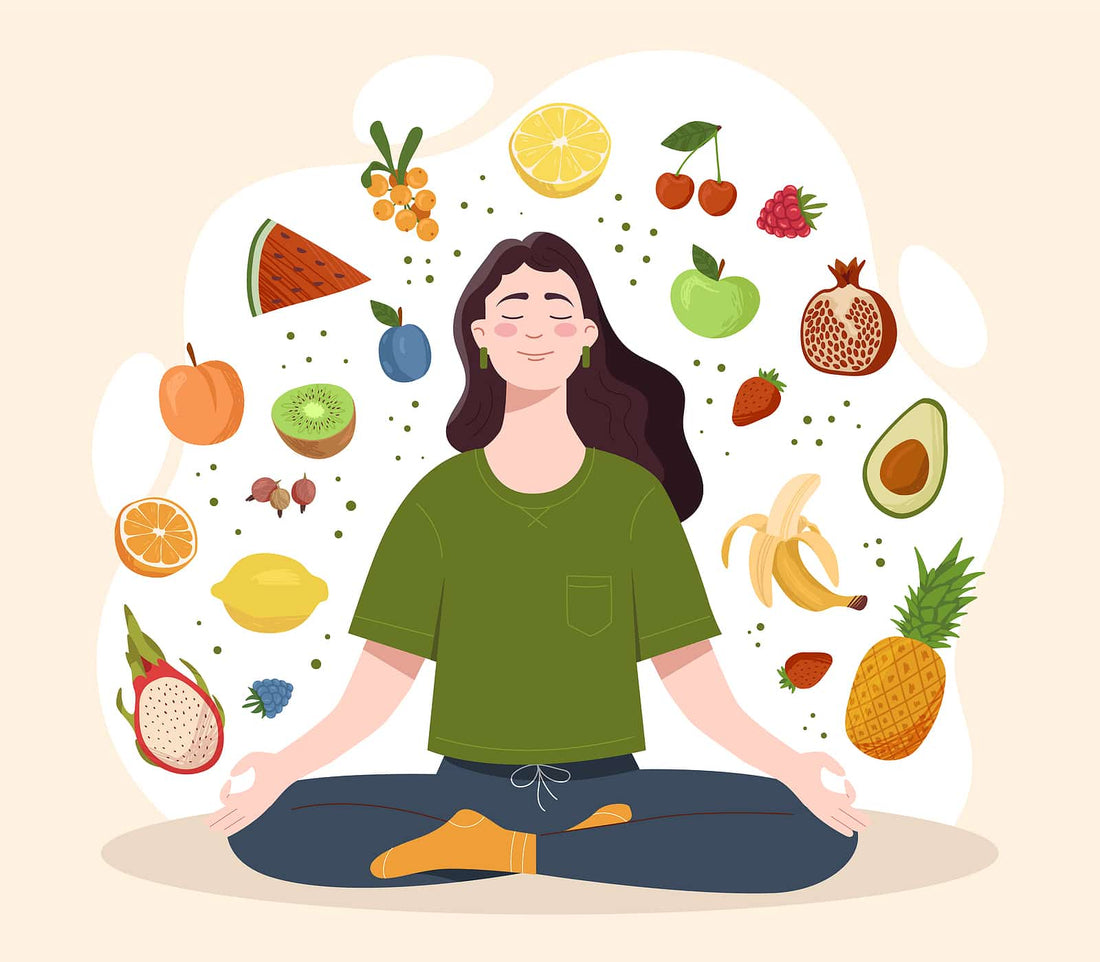You’ve probably heard the term mindfulness a time or two.
It’s a word that embalms the idea of being intentional, aware, and proactive about the things around you.
And while it seems to be a trending topic in the health and wellness world, it’s a concept that’s been practiced for centuries.
A 2011 Harvard study suggests that mindfulness-based stress reduction (MBSR) can thicken your hippocampus. This part of your brain is responsible for storing your memory, learning abilities, and can slow down some of the natural aging processes (1).
What does this mean for you? It means practicing mindfulness can help you learn and remember things better – not to mention keeps you younger, longer.
Mindfulness is like a muscle. The more you practice, the easier it is to make it part of your daily routine.
And when it comes to eating, this practice can change your life. Studies have shown certain correlations between eating habits and athletic or academic performance (2). Those who ate poorly, performed poorly.
But thankfully the reverse is true as well. People who eat well tend to feel better, think better, and perform better in all areas of life.
If your goal is to better your health, how do you know if you’re adopting mindful eating habits?
There are many different ways to work that mindfulness muscle. Friends, online communities, and smartphone apps can help guide you toward specific nutrition goals.
Below are 8 ways you can test yourself to see if your eating habits include mindfulness.
1. You Know the Difference Between Hunger and Boredom
During slow moments in life, it’s easy to reach for a bag of chips or sip down a glass of tea just because it’s there. You’re not actually hungry, but you’re bored and feel you need to fill that space (9).
Instead, take a moment to acknowledge the stillness. Not every moment in life needs to be active – studies show moments of boredom is good for your brain and body (11).
2. You Go Into Eating With An Objective Perspective
If you’ve ever struggled with an eating disorder, this can be challenging to overcome. Even then, it’s possible with the right support and mentality.
Mindful eating means experiencing your meals with an objective, non-judgmental approach (10). Accepting that you don’t like certain textures, or do like certain spices, without making conclusions about your worth or value as a person, is important.
3. You’re Aware Of Your Other 4 Senses
Eating is more than just tasting your food. Noticing the different colors with your eyes (8), feeling the different textures with your tongue, inhaling the different aromas, and even listening to how foods sound can make your meal experience more enjoyable.
4. You Pick Up On How Your Body Responds
During and after your meal, how does your body feel? Does it feel warm and lulled, or light and energized?
These feelings can be your body responding to the food by releasing chemicals, hormones, or digestive fluids, which are regulated by your natural circadian rhythm (7). Recognizing these sensations can help you optimize your eating experience, as well as your overall health.
5. You’re Familiar With the Difference Between Mindful Eating and Intuitive Eating
It might seem like they’re the same things, but intuitive eating is more geared towards responding towards fad diets or unhealthy trends, whereas mindful eating is about embracing a more positive lifestyle with food.
Some of the principles (4) behind intuitive eating include rejecting a diet philosophy, making peace with food, and honoring your feelings without using food.
Taking both into consideration helps you maintain a healthy balance in terms of eating.
6. You’re Not Afraid to Ask Yourself the Hard Questions
No one likes being exposed, especially if there is shame involved. But when it comes to mindful eating, you’re not afraid to explore the psychology of eating (5) and ask yourself the hard questions.
Questions like:
- Am I really hungry, or am I just bored?
- How do I usually eat?
- Why am I eating this particular food?
- How do I feel about exercise, and why do I feel that way?
- Am I using food to cover something up or escape this particular moment?
Answering these questions in an honest and non-judgmental way can help uncover some habits that might need adjusting.
7. You Recognize Signs of Being Satisfied
Notice I didn’t say “full”. Overeating can leave you feeling full or worse, stuffed. It’s been said that it takes your brain about 20 minutes to recognize when you’ve eaten enough. This is a rough estimate, with variables like hormones, activity, how much your stomach expands, and beliefs going into your meal that can all determine how quickly you feel satisfied (3).
8. You’re Grateful For the Experience
Whether the meal was delicious or just mediocre, you can choose to be thankful for the experience. A recent study showed that gratitude can help decrease negative emotions, which can affect your eating choices (6).
Remembering that not everyone has access to variety can help bring perspective to your dining. It can also spark a sense of generosity, inspiring you to donate or be a part of organizations that provide food for those less fortunate.
Wrap Up
Perhaps after reading this list, you realized you’re not much of a mindful eater.
That’s ok! Each day brings a fresh start, which means you have new opportunities to practice mindfulness in this particular area of your life.
From recognizing boredom, feeling full, and being ok not liking certain foods, mindful eating is something we can all grow in.
Which of these areas surprised you the most? Feel free to share with us!
References & Disclaimers
1. https://www.ncbi.nlm.nih.gov/pmc/articles/PMC6312586/
2. https://www.ncbi.nlm.nih.gov/pmc/articles/PMC6315356/
4. https://www.intuitiveeating.org/10-principles-of-intuitive-eating/
5. https://my.clevelandclinic.org/health/articles/10681-the-psychology-of-eating
6. https://www.sciencedirect.com/science/article/abs/pii/S0022103117308569?via%3Dihub
7. https://www.ncbi.nlm.nih.gov/pmc/articles/PMC4078443/
8. https://www.canr.msu.edu/news/eating_with_all_five_senses_sight
9. https://www.ncbi.nlm.nih.gov/pmc/articles/PMC4381486/
10. https://journals.sagepub.com/doi/full/10.1177/0260106019888367
11. https://www.psychologytoday.com/us/blog/science-choice/202004/5-benefits-boredom
✝✝This noted statement is based on independent research and is not necessarily the opinion of the author
